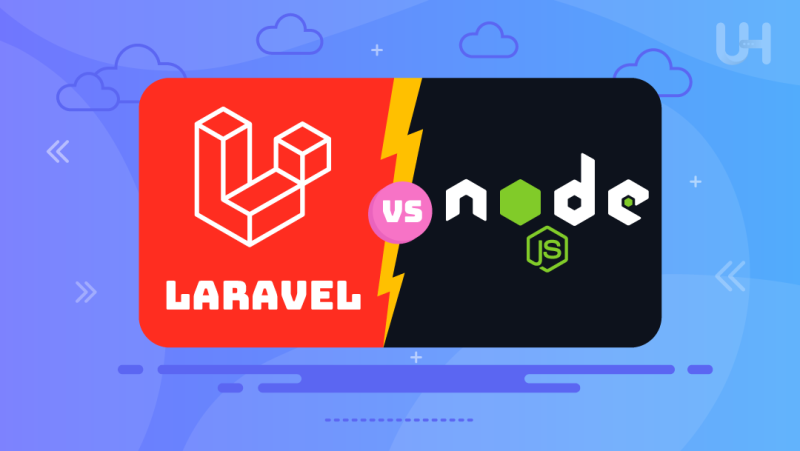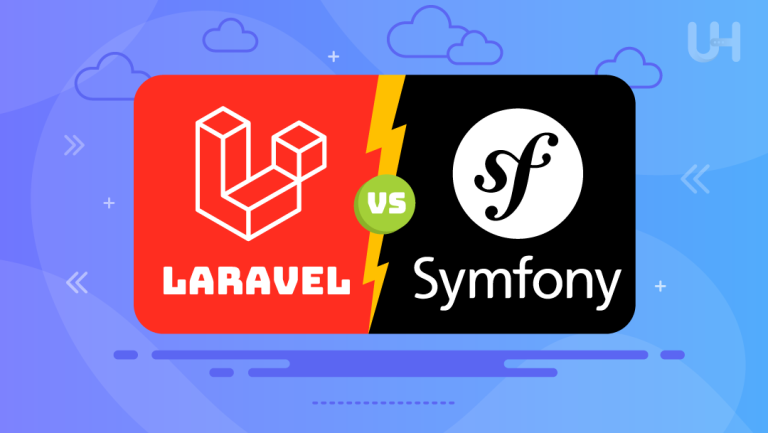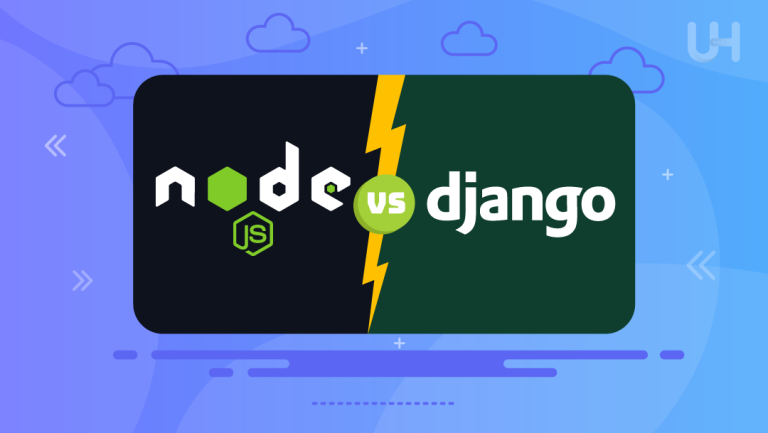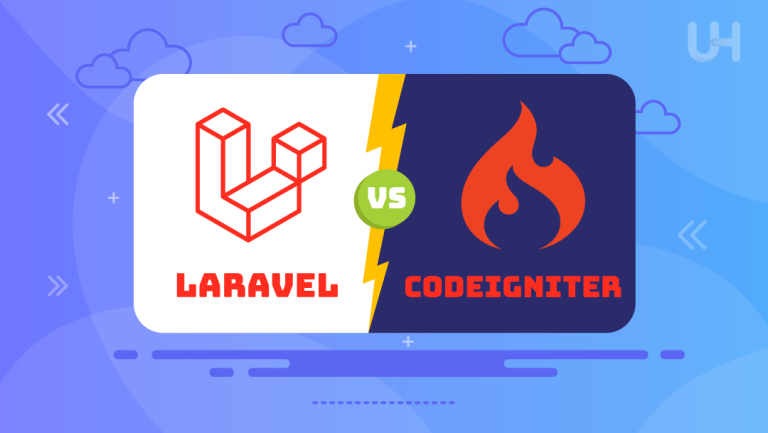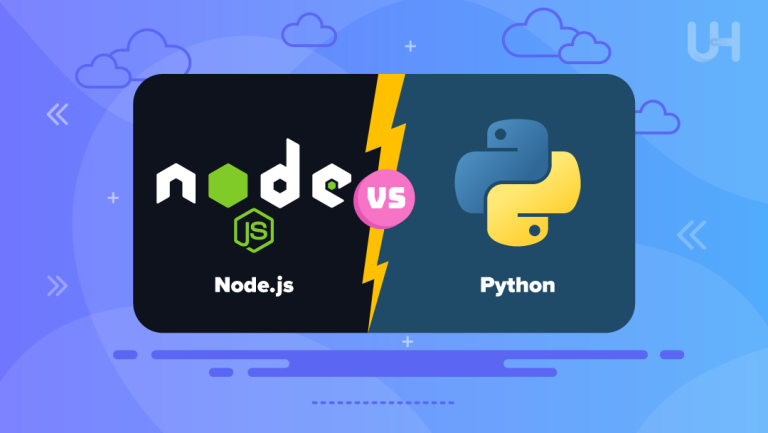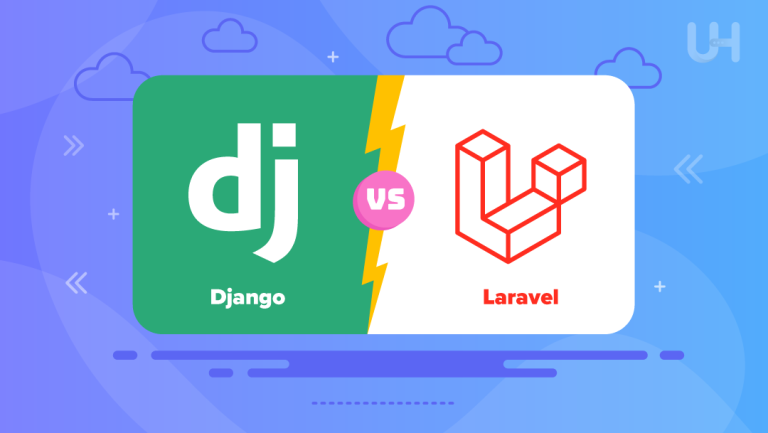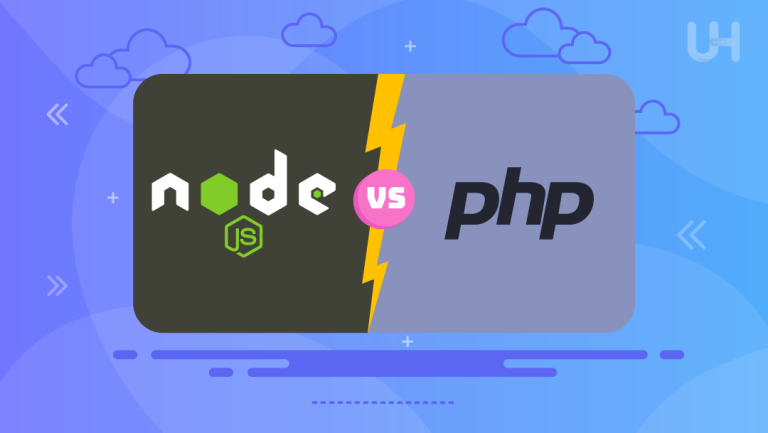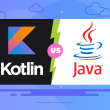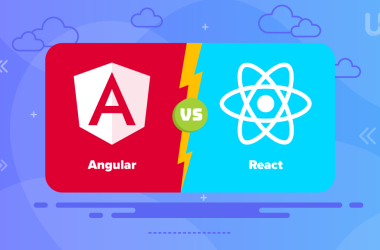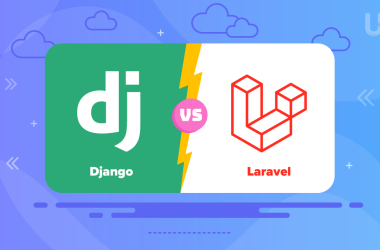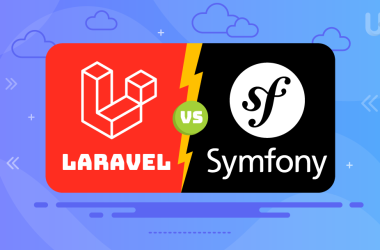Choosing the proper backend framework defines everything for your web development project. Among dozens of options available on the market, the two main are: Laravel vs Node.js. Laravel offers an elegant syntax and an extended ecosystem based on PHP, while Node.js, based on JavaScript, allows unmet performance and scalability.
In this blog, we will explore the critical differences between Node vs Laravel so that all the mist around confusion will eventually wither away, and it will become easier for you to determine the proper framework for your project. Whether you are building a small application or a mammoth enterprise solution, knowledge about these frameworks would define your decision-making process.
What is Laravel?
Laravel is a robust PHP framework built to make web development easier and faster. Its beautiful syntax and comprehensive tools simplify the most common tasks, like routing, authentication, and caching. One of the critical ORMs is Eloquent, which works smoothly with databases. It has an excellent modular packaging system for its extensions in Composer, through which third-party libraries can be installed to extend Laravel.
Moreover, it is surrounded by a rich ecosystem of tools that supplement its weaknesses in other areas, such as Laravel Forge and Envoyer for deployment and Laravel Mix for asset management, making it very popular for modern web apps.
What is Node.js?
Node.js is a powerful runtime for JavaScript based on the V8 Chrome engine that allows developers to create server-side applications quickly and with scalability. Unlike traditional server-side languages, Node.js uses an event-based, non-blocking I/O architecture to handle multiple connections efficiently. This makes it ideal for real-time applications like chat apps and online gaming.
It comes with npm, the most giant package ecosystem in the world, literally at arm’s reach for using tens of thousands of libraries and open-source tools. Its ability to remain responsive and performant, combined with the rich ecosystem, turns Node.js into a choice for modern, high-performance web applications.
Power Your Node.js Projects With Reliable Hosting
Consider UltaHost’s hosting for optimal performance and scalability in your Node.js projects. With dedicated resources and top-notch support, UltaHost ensures your applications run smoothly, making it the perfect choice for high-performance Node.js hosting solutions.
Language and Syntax: Laravel vs Node.js
Laravel
Laravel leans on PHP, a very mature scripting language that is easy to learn, particularly for beginners. To developers who are fresh to the programming world, the PHP syntax is just simple, so it’s less of a big deal. It follows a traditional, procedural style, but it also allows one to mix object-oriented programming, hence offering flexibility in the structure of one’s code.
NodeJS
Node.js runs on JavaScript, a loose programming language widely used for both front-end and back-end purposes. The general syntax of JavaScript is dynamic and event-driven, enabling developers to write asynchronous code quickly. This makes explicitly Node.js ideal for real-time applications and event-driven architectures.
Performance and Speed
Laravel
Being PHP-based, Laravel runs well for many web applications but is generally slower than Node.js due to its synchronous request handling. It controls several requests by putting them in a queue, which increases response times during high loads. However, Laravel’s caching mechanisms and optimized database queries help improve performance.
NodeJS
Due to its non-blocking, asynchronous architecture, Node.js is fast and performs well. No process in Node.js will have to wait for a previously started process to finish; it simply proceeds with the following request. Given this event-driven model, the response times are minimal, and load balancing is high with less bounce rate, which is one of the significant interests in applications where everything happens in real time.
Scalability and Flexibility

Laravel
Laravel is very good at scaling application development. It fits well with this, considering its great database and caching strategies. However, its synchronous processing can become a bottleneck in very large-scale applications. That is the flexibility of Laravel—it permits developers to develop applications of all sizes accordingly.
NodeJS
Node.js is highly scalable and offers great potential for high performance. It is a way to simply and effectively manage many simultaneous connections, most of the time giving the application options to choose from when considering real-time, high-load applications. The language is also flexible in that it allows scaling applications by adding new nodes in a horizontal dimension, making it a favored choice in projects with fast-growing needs.
Ecosystem and Libraries
Laravel
Laravel has a rich ecosystem of tools: Forge for server management, Envoyer for deployment, and Homestead for local development. It boasts a vast collection of already built and easily Composer-installable packages, which makes integrating complex features easier. Laravel has an active community, excellent documentation, tutorials, and accessible support.
NodeJS
One of Node.js’s main benefits is that it has the most extensive package ecosystem, npm, at its disposal. This ecosystem provides thousands of open-source libraries for nearly any development need. Its ecosystem is very versatile, too. It has tools to cover everything, from testing to deployment. The large and vibrant community secures continuous innovation and support.
Database Management
Laravel
Laravel offers a great database management system thanks to the built-in ORM, Eloquent. It is effortless to work with databases using this and perform various operations using English-like object-oriented syntax. It also provides flawless database migrations that help you quickly adjust your schema.
NodeJS
Node.js does not have an in-built ORM support, although it can be easily integrated with any database, be it Sequelize for MySQL servers or Mongoose for MongoDB. It strongly supports a wide range of databases, both SQL and NoSQL. Database management in Node.js depends heavily on community-driven tools and is more flexible in setup.
Security Features: Laravel vs Node.js
Laravel
Laravel has built-in protection against CSRF, encryption, and hashed passwords using Bcrypt. The framework will also assist you in defending against SQL injection using Eloquent ORM, while automatic data escaping in templates will relieve you of writing the code specifically for checking out all possible entries in the database.
NodeJS
Node.js does not build security features for data privacy; it depends on third-party packages and best practices. Many developers adopt libraries such as Helmet for securing HTTP headers or bcrypt.js for hashing passwords. Node.js is particular about ensuring that dependencies are fresh and secure, and best practices are followed to this end to yield protection at the application level.
Ease of Use and Learning Curve
Laravel
Laravel boasts easy-to-use syntax and extensive documentation. Therefore, even a developer new to backend development can easily understand it. Its well-structured ecosystem of tools, like Artisan and Eloquent, makes most common tasks much easier, reducing the learning graph. Its large community provides many tutorials, forums, and resources that help a beginner master this framework.
NodeJS
Node.js has a steeper learning curve because of its asynchronous nature and the need to manage all those tools and libraries. However, it’s worth the trouble for full-stack developers since, everywhere you look, there’s JavaScript to be discovered, even in Java hosting servers. Intensive community support has also paid off; Node.js has detailed documentation and abundant learning resources.
Future Of Laravel and Node js
Laravel
Like any other framework, Laravel is constantly updated; most significant updates focus on the developer experience and ecosystem. Strong community and enterprise adoption secure a place for it in any future relevance. With PHP continuing to hold a top position in languages used for web development, Laravel would likely be a leading framework in quickly building robust, scalable applications.
NodeJS
The future is bright for Node.js due to its broad and increasing usage of real-time and microservices architectures in modern web development. Continuing on the path of JavaScript growth and appearing while serverless architecture computing takes over, Node.js is becoming increasingly popular. Its adaptability and performance assure Node.js of its position as one of the most influential and promising technologies within backend development.
Conclusion
The choice between Laravel vs Node.js should be based on your project’s needs and your development team’s skills. Laravel, with its beautiful syntax and comprehensive ecosystem, fits perfectly into projects that require a structured approach to realization and include robust security features. Node.js provides unbeatable performance and scalability solutions, making it perfect for real-time applications and high-traffic environments. Consider these factors to judge the best fit for your project.
For seamless Laravel performance, UltaHost’s robust PHP Hosting offers optimized servers, ensuring your applications run smoothly. With robust security features and dedicated support, UltaHost provides the ideal environment for your Laravel projects to thrive, making it the top choice for PHP hosting.
FAQ
What is Laravel used for?
Laravel is used for building web applications using PHP, with tools for routing, authentication, and database management.
What makes Node.js different from Laravel?
While Node.js is a runtime JavaScript environment that excels with real-time, high-throughput applications, Laravel is a lightweight PHP framework known for its simplicity yet robustness.
Which among these seems more straightforward to learn?
Laravel is easier to learn due to its clean structure and good documentation. The learning curve for Node.js, in an aspect of asynchronous programming, is rather huge.
Can Laravel handle large-scale applications?
Though suitable for large and complex applications, Laravel cannot match Node.js in performance terms due to its synchronous nature under extremely high loads.
Can I combine Laravel with Node.js?
Yes, Laravel can be used for backend management and Node.JS for real-time tasks or specific functions within the same project.
Which one has better community support, Laravel or Node.js?
Both Laravel vs Node.js enjoy strong community support, with numerous resources, tutorials, and libraries available.
Which one is more secure: Laravel or Node.js?
Security is one reason why Laravel also tops Node.js: it has more built-in security features. In this respect, Node.js relies on third-party packages that insist on additional care regarding security management.





